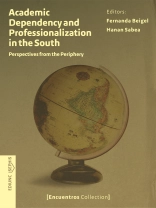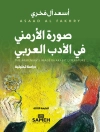Since 1960, an unequal international structure is recognized in terms of production and circulation of knowledge in the international science system. This phenomenon is called academic dependency and motivated actions towards promoting the education of scientist and stimulating the bond between institutions and scholars of the periphery. This, considering that the peripheral knowledge-production structures were compromised by colonialism and its lasting effects.
Inhaltsverzeichnis
Preface: SEPHIS and a Critical Look at Academic Dependency in Today’s World
Introduction
Section A: Conceptualization and Theoretical Debate
Chapter 1: Academic Dependency: The Intellectual Challenge
Chapter 2: Cultural Components of Social Science in the Global Age
Chapter 3: The Problematic of ‚Indigenous‘ and ‚Indigeneity‘: South Asian and African Experiences
Section B: Internationalization and Academic Autonomy in Historical Perspective
Chapter 4: Middle Classes and Pan American Networks: Building a Class for Social Change
Chapter 5: ‚There is No Development without Experts‘: International Cooperation and the Education of Public Administration Professionals in Chile
Chapter 6: Professional trajectories as a route to the legitimization of Sociologists: Notes on the Chilean Case
Chapter 7: Questions on Internationalization of Research Groups, Student Mobility and Brain Drain
Section C: Peripheral Proffesionalization and Academic Dependency
Chapter 8: Alternatives to Hegemonic and Eurocentric Agendas of Socio-environmental Research: An Experience Based on the Zapatista Case
Chapter 9: A Case of Financial Dependency: Scientific Policy during the Argentine Military Dictatorship (1976–1983)
Chapter 10: Academic Dependency and Scholarly Publishing among Social Scientists at Selected Universities in Nigeria
Chapter 11: ‚Citizen of the World‘ or a Local Producer of Useful Knowledge? That’s the Question
Section D: Higher Education and Foreign Models
Chapter 12: An Emancipatory Look at Comparative Education: A Formative Discipline for Research and Government in Latin America
Chapter 13: Effects of Structural Adjustment Programs on Funding Policies in Institutions of Higher Education in Kenya
Chapter 14: The Expansion of Higher Education in Brazil and Its Principal Challenges List of
Abbreviations
About the Authors
Über den Autor
Fernanda Beigel: Sociologist and Ph D in Social Sciences. Independent Researcher at Argentina's National Council for Scientific and Technical Research (CONICET), Head Professor of Sociology and Director of the Ph D Program at the National University of Cuyo (Mendoza, Argentina). Her research interests include Latin American Sociology, Comparative studies on higher education and Sociology of power. She has published work on the relations between academic autonomy and politicization in Latin American Social sciences during the 1960s. She is currently working on the role of academic publishing within the World Scientific System and the new forms of peripheriality. Recent publications: Beigel, F (2011) Misión Santiago. El mundo academico Jesuita y los inicios de la cooperación internacional católica. LOM: Santiago de Chile; Beigel, F. Ed. (2013) The politics of Academic Autonomy in Latin America. Ashgate: London; Beigel, F. (2014) ‚Publishing from the Periphery: Structural heterogeneity and segmented circuits. The evaluation of scientific publications for tenure in Argentina's CONICET, ‚ Current Sociology, 62 (5).
Hanan Sabea: Associate Professor of Anthropology at the American University in Cairo. She received her Ph D in Anthropology from Johns Hopkins University in 2001. Her research examines the dynamics of land and labor on plantations in colonial and postcolonial Africa, state-subject relations, and the production of histories and memories, which are part of her forthcoming monograph Present Pasts: Coloniality of Power and Laboring Subjects on Sisal Plantations in Tanzania. Her current research projects include shifting meanings of the political; irregular migration; gender and regional gatekeeping concepts; and knowledge production in the social sciences. She has published articles in Africa, Journal of Historical Sociology, African Studies, Feminist Africa, and International Journal of African Historical Studies. Additionally, she is co-editor of Visual Productions of Knowledge: Toward a Different Middle East (Cairo Papers in Social Science, American University in Cairo Press) and How to Read the Arab World? Alternative Perspectives from the Social Sciences (Cairo: Al-Ain Publishing House).












